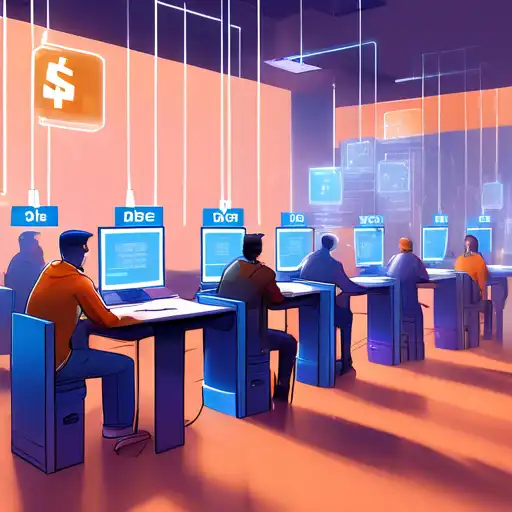Introduction to Blockchain in Voting
In the digital age, the integrity of voting systems is more important than ever. Blockchain technology, known for its security and transparency, is emerging as a revolutionary tool in ensuring secure and tamper-proof elections. This article explores the pivotal role of blockchain in transforming voting systems worldwide.
Understanding Blockchain Technology
Blockchain is a decentralized ledger that records transactions across multiple computers in such a way that the registered transactions cannot be altered retroactively. This feature makes blockchain an ideal candidate for secure voting systems, where the integrity of each vote is paramount.
The Benefits of Blockchain in Voting
Blockchain technology offers numerous advantages for voting systems, including:
- Enhanced Security: The decentralized nature of blockchain makes it nearly impossible to hack or manipulate voting data.
- Transparency: Every transaction on the blockchain is visible to all participants, ensuring a transparent voting process.
- Immutability: Once a vote is recorded on the blockchain, it cannot be altered or deleted, ensuring the integrity of the election results.
- Accessibility: Blockchain can enable remote voting, making it easier for people to participate in elections from anywhere in the world.
Challenges and Considerations
Despite its potential, the implementation of blockchain in voting systems faces several challenges, including:
- Technical Complexity: The complexity of blockchain technology may pose a barrier to its widespread adoption in voting systems.
- Privacy Concerns: Ensuring voter anonymity while maintaining transparency is a delicate balance that needs to be addressed.
- Regulatory Hurdles: The legal framework surrounding blockchain-based voting is still in its infancy, requiring clear regulations to ensure its legitimacy.
Real-world Applications
Several countries and organizations have begun experimenting with blockchain-based voting systems. For example, Estonia has been a pioneer in implementing blockchain technology for various governmental services, including voting. Similarly, Sierra Leone tested blockchain in its presidential election, showcasing the potential of this technology in real-world scenarios.
Conclusion
Blockchain technology holds the promise of revolutionizing voting systems by enhancing security, transparency, and accessibility. While challenges remain, the potential benefits make it a compelling solution for the future of elections. As technology evolves and regulatory frameworks mature, blockchain could become the standard for secure voting worldwide.
For more insights into the future of technology in governance, explore our technology in governance section.
